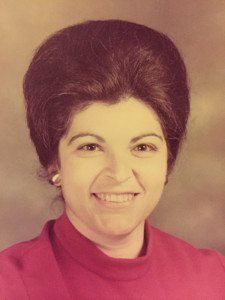I felt like a bit of an interloper at a Ferrahian School reunion when I attended Marilyn Arshagouni’s funeral last week, a sad but also uplifting occasion. It was particularly sad since her daughter-in-law’s brother, whom I’d known since college, had died, far too soon, just a week earlier.

I was, of course, told by her former students that I was welcome. And that’s where the uplift and importance of this woman and her generation’s work really hit home.
Marilyn was one of the first teachers at Ferrahian and earned the love and respect of her students through her firmness, knowledge, and ability to inspire (perhaps in current jargon the word to use might be “motivate”). Her eulogizers conveyed this well. That inspiration is what caught my attention.
As I looked around, I realized that those of her students I knew were indeed delivering important benefits and services to the Armenian community and nation—whether it was the author who is writing another novel that will not be genocide-themed, but Armenian-contexted to subtly convey that which is important to us; the numerous attorneys who are waging our struggle on the legal front; Sassounian Defense Committee activists; or, the phalanx of Armenians who passed through her care and are now simply doing their part for our community.
She did this while being an English teacher! Here, the whole question of identity in the United States rises. Hers was a generation that was born at a time when we, as Armenians, were still overtly discriminated against; when the obnoxious “This is America, speak English (read: EXCLUSIVELY)” sentiment was the norm; when youth of all national backgrounds were shamed into discarding their ancestral legacies. Yet, they overcame this massive sociological hurdle to raise and train a far more confident and comfortable generation that is now on the front lines of our struggle.
Richard Hovannisian, part of her generational cohort, spoke to this struggle he and she had gone through—first avoiding then embracing their Armenianness. One of his and Marilyn’s connections was that she edited his Ph.D. thesis and subsequent two volumes of The Republic of Armenia for clarity.
She is the type of teacher I hope our Armenian schools are full of today. She is the type of teacher that I hope any Armenian working in public or other non-Armenian school settings is like. These folks are key to inspiring, then connecting, our best and brightest to our community, its organizations and institutions, and ultimately, our national struggle.
As I wrote these lines, I realized that the thoughts and reactions I am experiencing must be akin to what my parents’ generation went through as the first generation of diasporan leaders started to pass from the scene.
Let’s avail ourselves of these otherwise sad occasions, making them opportunities to further our national growth.


Be the first to comment